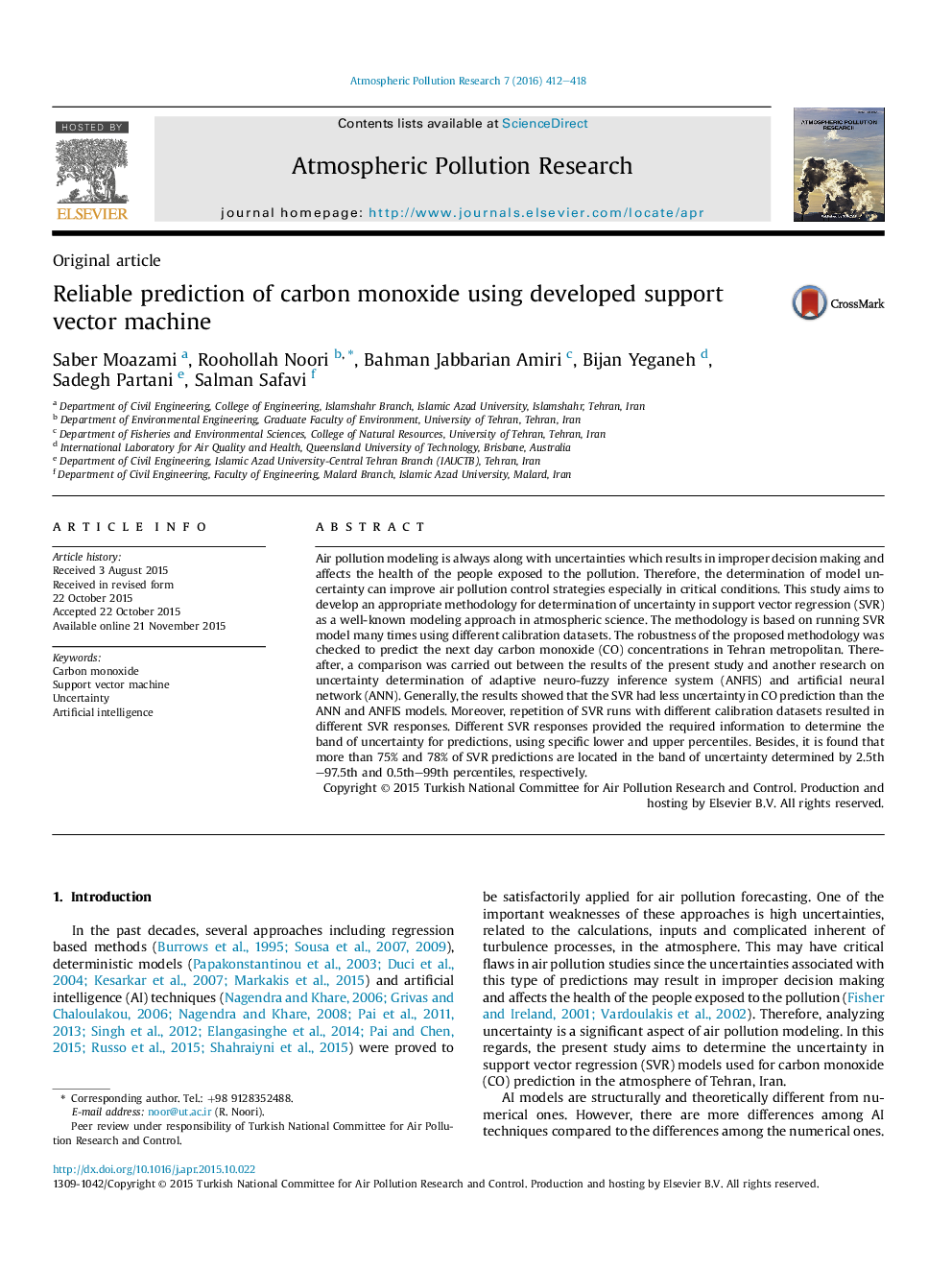| Article ID | Journal | Published Year | Pages | File Type |
|---|---|---|---|---|
| 4434520 | Atmospheric Pollution Research | 2016 | 7 Pages |
Air pollution modeling is always along with uncertainties which results in improper decision making and affects the health of the people exposed to the pollution. Therefore, the determination of model uncertainty can improve air pollution control strategies especially in critical conditions. This study aims to develop an appropriate methodology for determination of uncertainty in support vector regression (SVR) as a well-known modeling approach in atmospheric science. The methodology is based on running SVR model many times using different calibration datasets. The robustness of the proposed methodology was checked to predict the next day carbon monoxide (CO) concentrations in Tehran metropolitan. Thereafter, a comparison was carried out between the results of the present study and another research on uncertainty determination of adaptive neuro-fuzzy inference system (ANFIS) and artificial neural network (ANN). Generally, the results showed that the SVR had less uncertainty in CO prediction than the ANN and ANFIS models. Moreover, repetition of SVR runs with different calibration datasets resulted in different SVR responses. Different SVR responses provided the required information to determine the band of uncertainty for predictions, using specific lower and upper percentiles. Besides, it is found that more than 75% and 78% of SVR predictions are located in the band of uncertainty determined by 2.5th–97.5th and 0.5th–99th percentiles, respectively.
